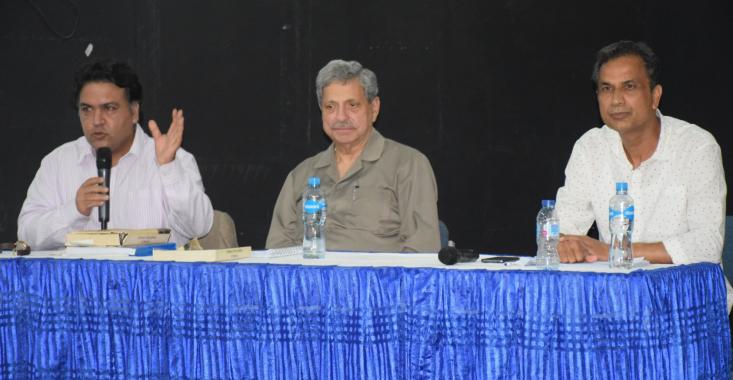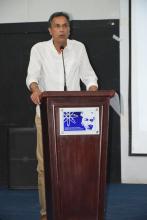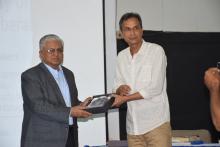
On September 20, 2019, the Rashid Razvi Center for Constitutional and Human Rights invited Dr. Muhammad Azeem, Assistant Professor at Shaikh Ahmad Hassan School of Law (SAHSOL) and Hamid Khan, Senior Advocate Supreme Court, for a debate on the judicial history of Pakistan at Shaheed Zulfikar Ali Bhutto Institute of Science and Technology (SZABIST), Karachi. The event was titled, ‘RCCHR Debate: Judicial History of Pakistan’ and the debate was moderated by Advocate Supreme Court, Faisal Siddiqi.
Mr. Hamid Khan, building on his book, A History of the Judiciary in Pakistan, pointed to the role of the judiciary in civil-military relations in Pakistan. He particularly focused on the events of 1971 to posit that a failure of the judiciary to adequately perform its role proved disastrous for Pakistan. As a result, the courts and the judiciary must learn from history and perform their role in strengthening democratic institutions in Pakistan.
Professor Azeem, in turn, building on his book, Law, State and Inequality in Pakistan: Explaining the Rise of the Judiciary, argued that Public Interest Litigation in Pakistan rests on a rights-oriented approach to law and is therefore severely limited. It does not empower grassroots communities and individuals because of its basic individualised approach. What is needed is a shift to a power-oriented approach, which requires collective action rather than individual litigation. The singular focus on the judiciary and the courts to foster democracy in Pakistan is therefore, misplaced, and must be revisited.
The arguments made for an intellectually stimulating discussion and provided a holistic picture of how the judiciary’s history can inform its future direction.







